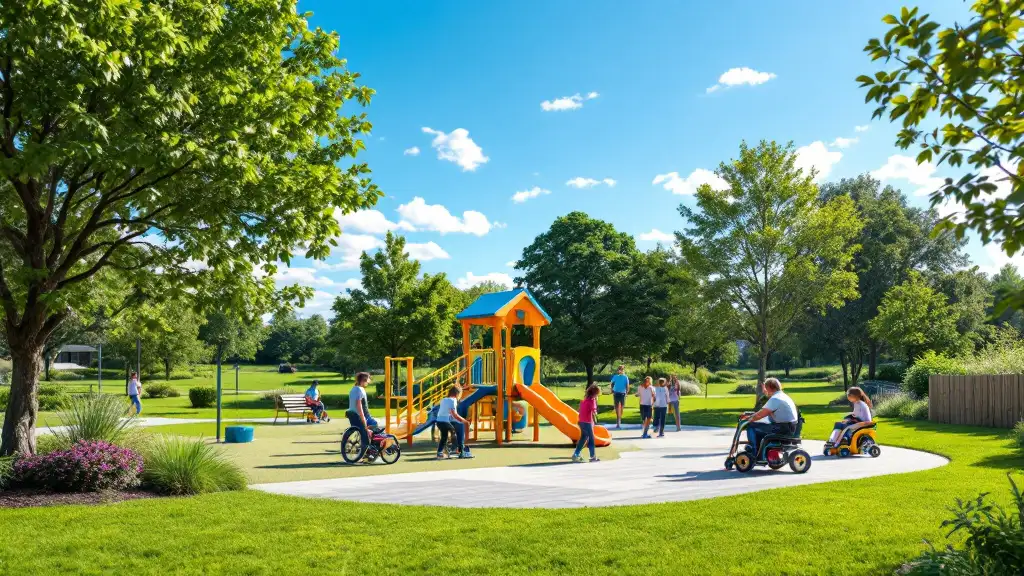
Understanding the Crucial Role of Caregivers
Caregivers are fundamental to the wellbeing and independence of adults with disabilities. Their diverse responsibilities stretch far beyond basic support, encompassing advocacy, emotional resilience, and coordination of comprehensive services. Recognizing their roles and addressing their challenges is essential to creating inclusive communities where individuals with disabilities thrive.
Core Responsibilities and Duties of Caregivers

What are the main duties and responsibilities of a caregiver?
Caregivers play a vital role in supporting individuals with diverse needs, especially those with intellectual and developmental disabilities (IDD). Their core responsibilities include providing personal and physical care such as bathing, grooming, dressing, and assisting with mobility tasks. They are also responsible for managing medications, monitoring health, and ensuring safety within the home environment.
Creating a safe living space involves installing devices like grab bars, handrails, smoke alarms, and non-slip mats to prevent accidents. Caregivers support nutritional needs by preparing special diets and ensuring proper food intake. They also organize medical appointments, communicate with healthcare professionals, and keep track of health records to facilitate ongoing care.
Moreover, caregivers offer emotional support and companionship, helping reduce loneliness and fostering a nurturing environment. Household chores, transportation to medical visits, and helping individuals access community services form additional parts of their duties. Adaptability, knowledge of safety protocols, and compassion are essential qualities for effective caregiving.
What is the role of a caregiver to a person with a disability?
The caregiver’s role extends beyond basic tasks to include advocacy, emotional support, and promoting independence. They support daily personal activities such as bathing and dressing, assist with medication management, and help navigate healthcare systems.
Caregivers also provide behavioral and emotional support, helping individuals deal with anxiety, disappointment, or behavioral challenges. They foster socialization and community engagement by arranging recreational activities and encouraging participation in social events.
Additionally, caregivers serve as advocates for their loved ones, ensuring their rights are respected and their needs are met in educational, healthcare, and social settings. Their presence helps adults and children with disabilities lead fuller, safer, and more independent lives.
Why is the caregiver role important?
Caregivers are indispensable because they deliver essential support that sustains and enhances the well-being of individuals with disabilities. Their efforts ensure that basic needs are met, health is managed, and emotional stability is maintained.
By assisting with daily activities such as hygiene, nutrition, and medication, caregivers play a direct role in preventing health complications and promoting safety. They also provide companionship, which is crucial for emotional health, especially for those who may experience social isolation.
Furthermore, caregivers advocate within healthcare and social systems, helping navigate complex services and ensuring individuals receive appropriate support. Without caregivers, many individuals with disabilities would face increased risks of neglect, hospitalization, and institutionalization.
How can you care for people with disabilities?
Caring for people with disabilities involves understanding their specific needs through continuous education and fostering an inclusive and accessible environment. Engaging with organizations like the Association for the Physically Disabled can provide valuable resources such as home-based care, social work, and mobility equipment.
Building effective communication is critical, using tools like visual aids or adapted technologies to facilitate understanding and participation. Promoting employment opportunities and supporting inclusive workplaces empower individuals with disabilities to achieve independence.
It’s essential to practice self-care as a caregiver, maintain patience, and seek ongoing support through community groups and professional resources. Creating a safe, organized home environment with modifications such as ramps and grab bars helps prevent accidents and promotes autonomy.
What support systems, policies, and programs are available for caregivers and adults with disabilities?
Numerous programs and policies support caregivers and individuals with disabilities. Federal initiatives like the National Family Caregiver Support Program (NFCSP), Lifespan Respite Care, and Medicaid waivers offer financial assistance, training, and respite services.
State-level programs may include specialized caregiver resource centers, Alzheimer’s support initiatives, and community-based services that enable flexible, person-centered care. Veterans and older adults can access benefits such as Aid and Attendance, veteran-Directed Care, and paid family leave, which provide financial and practical support.
Advocacy organizations like the Caregiver Action Network and the Family Caregiver Alliance serve as valuable sources of information, training, and emotional support. These programs aim to alleviate caregiving burdens, improve service access, and promote well-being.
What impact does caregiving have on the mental health and well-being of caregivers and people with disabilities?
Caregiving significantly affects mental health, with many caregivers experiencing high levels of stress, anxiety, and depression. The emotional toll varies depending on the caregiving intensity, the health of the care recipient, and support availability.
Caregivers often report feelings of exhaustion, social isolation, and health decline, including higher risks for chronic illnesses. They might also face sleep disturbances and fatigue, which diminish overall well-being.
Despite these challenges, some caregivers report feelings of purpose and strengthened bonds, highlighting the complex emotional landscape of caregiving. Adequate support, respite care, and mental health services are essential to mitigate negative impacts and foster resilience.
What role do health professionals and community support play in assisting caregivers?
Healthcare professionals and community organizations are vital in providing training, emotional support, and resources that empower caregivers. They help assess caregiver needs, offer counseling, and facilitate access to respite care, reducing burnout risks.
Community programs, peer support groups, and local agencies create networks of emotional and practical support, fostering a sense of belonging and shared experience.
Collaboration between healthcare providers and community services ensures caregivers receive comprehensive support, improving both caregiver health and the quality of care for individuals with disabilities.
What skills and qualifications are necessary for competent caregiving?
Effective caregiving requires empathy, patience, reliability, and excellent communication skills. Physical stamina is important for tasks involving mobility assistance and lifting.
Organizational skills help manage appointments, medication schedules, and household routines. Cultural competence and respect are crucial for personalized care that preserves dignity.
Formal training, certifications such as CPR and first aid, and ongoing education ensure caregivers are prepared for diverse situations. Decision-making, problem-solving, and adaptability are also essential traits for competent caregivers.
What are the available payment, benefits, and assistance programs for caregivers?
Caregivers can access financial support through programs like Medicaid’s Consumer-Directed Personal Assistance Program (CDPAP), which allows family members to be paid for caregiving. Veterans may receive aid and attendance pensions, and some states offer paid family leave.
Additional resources include community grants, respite care benefits, and long-term care insurance plans that may cover caregiver costs. These programs aim to offset financial burdens, support caregiver health, and ensure sustained care quality.
Physical and Emotional Challenges in Caregiving

What impact does caregiving have on the mental health and well-being of caregivers and people with disabilities?
Providing care for individuals with disabilities or chronic health conditions profoundly affects the mental health of caregivers. Many experience heightened levels of stress, anxiety, and depression, with a significant portion reporting symptoms severe enough to warrant clinical intervention. The demanding nature of caregiving tasks, coupled with behavioral and functional challenges faced by the care recipients, can amplify psychological distress.
Caregivers’ mental well-being is influenced by various factors, including gender roles and the level of social support available. For instance, female caregivers often report higher stress levels and risk of depression. The emotional toll can lead to burnout—a state of physical, emotional, and mental exhaustion—which diminishes caregivers' quality of life and ability to provide care.
While some find purpose and strengthened relationships through caregiving, the cumulative stress can cause negative health outcomes. Fortunately, support mechanisms like respite care, educational programs, and peer support groups can alleviate these burdens. These strategies are vital in promoting resilience and overall well-being for both caregivers and individuals they support.
How does caregiving affect physical health, and what are common injuries or health issues?
The physical impact of caregiving is often underestimated but can be severe. Caregivers frequently suffer musculoskeletal injuries due to lifting, transferring, or assisting with mobility tasks. Common issues include muscle strains, sprains, and back pain, which can develop from repetitive physical activities.
Additionally, the physical toll of caregiving includes fatigue, sleep disturbances, and stress-related conditions such as gastrointestinal problems and hypertension. Prolonged neglect of personal health can lead to chronic illnesses and even premature death.
Many caregivers also suffer from injuries related to inadequate training or lack of adaptive equipment, making certain tasks more physically demanding. Over time, these health problems can significantly impair caregivers' ability to continue their roles, emphasizing the importance of support services, proper training, and ergonomic tools to mitigate risks.
Why is respite care and emotional support crucial for caregivers?
Respite care provides temporary relief from caregiving duties, allowing caregivers to rest, attend to personal needs, and engage in social activities. This break is essential in preventing burnout, which is characterized by exhaustion and emotional fatigue.
Emotional support through counseling, support groups, and community networks plays a vital role in helping caregivers manage feelings of social isolation and stress. Connecting with others facing similar challenges offers practical advice and emotional comfort.
Such support systems help sustain caregivers’ mental and physical health, enabling them to continue offering quality care. They also promote resilience, reduce the risk of depression, and improve overall life satisfaction, making respite care and emotional support indispensable elements in caregiving responsibilities.
Supporting Independence and Accessibility in Caregiving

How can caregivers support independence for adults with disabilities?
Supporting independence is a vital goal in the caregiving landscape. Caregivers can foster autonomy by designing accessible environments that allow individuals to move safely and confidently within their homes. This includes installing ramps for wheelchair access, grab bars in bathrooms, and non-slip flooring to prevent falls. Such adaptations help reduce barriers to movement, making daily activities more manageable.
In addition to physical modifications, utilizing assistive technologies plays a significant role. Devices such as communication aids, environmental control systems, and health monitoring tools empower individuals to perform tasks independently. For example, adaptive software can help a person with mobility limitations navigate their home or communicate needs effectively.
Encouraging autonomy can also involve actively involving individuals in their own care planning and decision-making processes. Respectful, person-centered approaches promote confidence and dignity. Routine skill development, such as practicing navigation, household chores, or self-care activities, supports continuous growth toward independence.
Overall, by emphasizing flexibility, resourcefulness, and respect for preferences, caregivers enable adults with disabilities to lead more self-directed, fulfilling lives. Structured routines and ongoing skill-building contribute significantly to sustained independence and well-being.
Building Support Networks and Community Resources

Why are support networks and community resources essential for caregivers?
Support networks and community resources play a crucial role in helping caregivers manage the many demands of caring for individuals with intellectual and developmental disabilities (IDD). These resources provide emotional encouragement, practical advice, and access to essential services that might otherwise be difficult to obtain.
Peer support groups, such as Caregivers Connect, the Family Caregiver Alliance, and the Sibling Leadership Network, offer spaces where caregivers can share experiences, exchange advice, and receive validation for their feelings. These groups help reduce feelings of isolation, which are common among caregivers who often spend many hours caring for loved ones.
Local agencies and organized support programs further assist caregivers by providing respite care, counseling, and educational workshops. Respite services allow caregivers to take needed breaks, preventing burnout. Counseling supports mental health and emotional resilience, while education improves caregiving skills and knowledge about specific disabilities.
Many community programs work collaboratively across sectors to develop tailored assistance plans, ensuring caregivers are supported holistically. This integrated approach empowers caregivers to sustain their efforts, improve their well-being, and deliver higher-quality care.
Overall, these networks and resources reinforce the vital role caregivers play, helping them to overcome challenges and improve outcomes for their loved ones.
What community programs are available for respite, education, and support?
Various community programs offer meaningful respite, educational opportunities, and emotional support to caregivers. The Statewide Respite Care Program, for example, provides adult day care, in-home support, and other community-based services that give caregivers temporary relief from their duties.
The Alzheimer’s Adult Day Services Program offers subsidized adult day care for individuals with dementia or similar conditions, allowing caregivers to rest or attend to other responsibilities.
Educational programs delivered by local organizations improve caregivers’ knowledge about managing disabilities and navigating healthcare systems. Workshops may include training on medication management, communication strategies, or the use of assistive technology.
Support groups form another pillar of community support, offering emotional resilience and the opportunity to share experiences and strategies with peers.
These community-based initiatives aim to empower caregivers, reduce their stress levels, and strengthen community bonds, ultimately helping caregivers provide more effective and compassionate support.
How can public policy enhance caregiver support?
Effectively integrating caregiver support into public policy requires recognizing caregiving as a vital, yet often undervalued, form of labor. Policies should focus on expanding access to respite care, which offers essential breaks for caregivers. Financial assistance programs, including stipends or subsidies, can alleviate economic stress.
Mental health services tailored for caregivers are also crucial, helping manage the emotional toll of caregiving. Governments can incentivize workplace flexibility and paid leave policies to allow caregivers to balance employment and caregiving duties.
Furthermore, promoting community-based programs that focus on person-centered planning ensures that support aligns with the individual needs of adults with disabilities. Legislation can also include training and certification programs for caregivers, elevating care quality and stability.
By embedding these supports into health and social care systems, policymakers acknowledge caregivers' indispensable contribution. This approach helps sustain caregiving efforts, improves outcomes for individuals with disabilities, and fosters inclusive, resilient communities.
Supporting Caregivers for a Better Future
Recognizing and empowering caregivers is fundamental to building inclusive, accessible societies where adults with disabilities can lead dignified, independent lives. Through comprehensive support systems, policy development, education, and community engagement, we can alleviate the physical and emotional challenges faced by caregivers. Investing in their well-being not only improves care quality but also sustains the vital contributions that caregivers make every day. A collective effort to support caregivers and promote societal understanding of their roles will foster communities where everyone—regardless of ability—can thrive.
References
- We're Family Caregivers of People With Disabilities & Here's What ...
- The Importance of Caring for the Nation's Caregivers - NACCHO
- Supporting Family Caregivers in Providing Care - NCBI
- The Role of Caregivers: Supporting Loved Ones with Disabilities
- Supporting Adults with Intellectual and Developmental Disabilities ...
- Guide to Caregiving for Adults with Disabilities - Inclusively
- Empowered Caregivers: Practical Guides & Emotional Support












